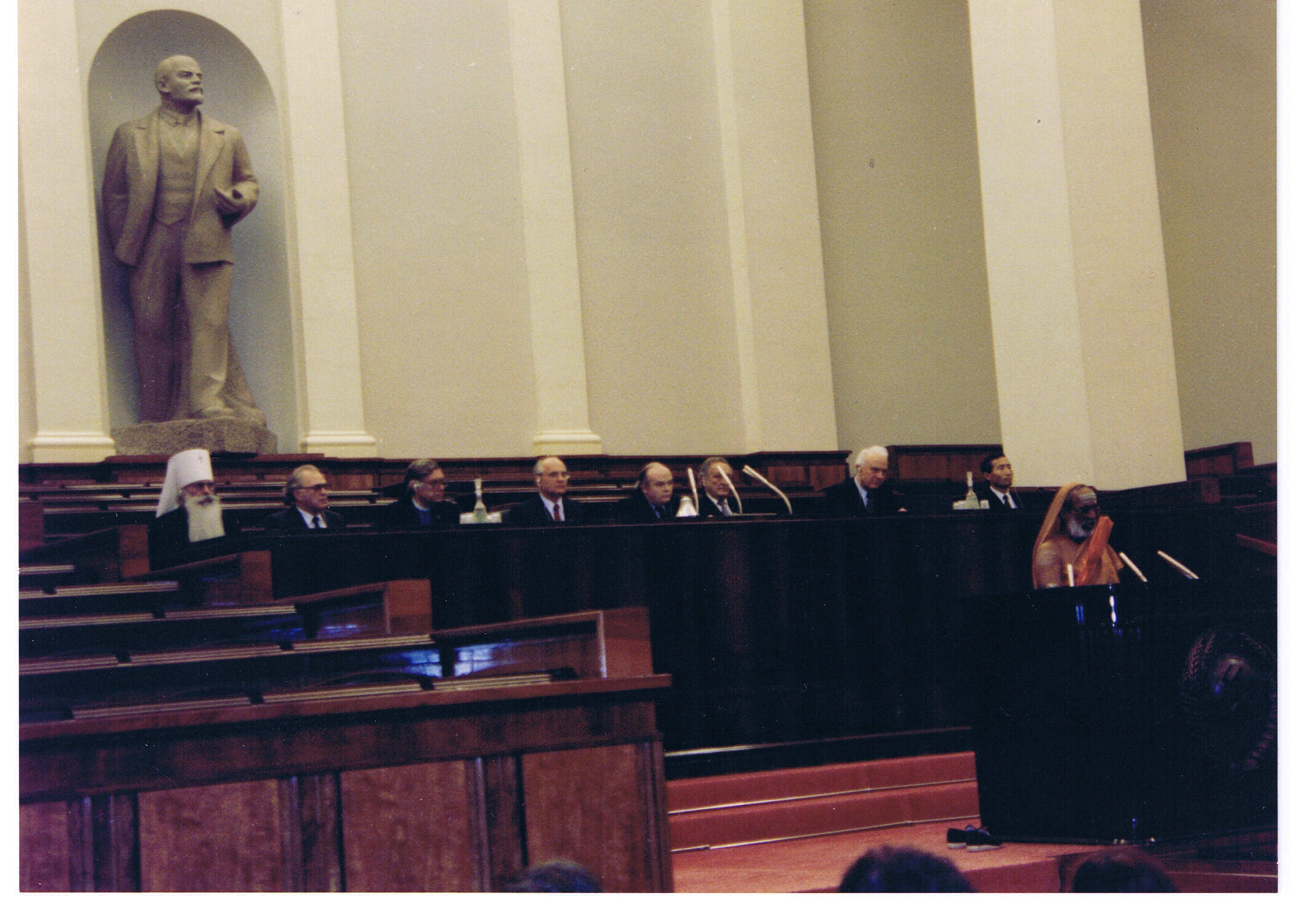By Akio Matsumura
At the Kremlin in Moscow in 1990 I learned a life changing lesson, watching those Jewish in attendance, all prominent leaders, pray to attend during the Sabbath. For those who are not familiar with Jewish tradition, the Sabbath is a weekly day of rest, lasting from Friday to Saturday evening, with the timing depending on the time of year. Observation and remembrance of the Sabbath is one of the Ten Commandments. I’ve mentioned this story in my blog before, on September 1, 2008 and Inauguration day, January 20, 2009 and received many responses. People have continually expressed deep surprise that we were able to transcend the religious tradition and have everyone in attendance at the closing ceremony. Although the story itself is extraordinary, it is the lesson that is most important.

Our global world is experiencing a battle of ideologies—of cultures. As these cultures grow, spread, and become more interconnected, more confrontations arise between them. Over the years I have stressed the importance of approaching each issue from a practical and spiritual perspective, encouraging effective change to be made while keeping long term ideals in mind. Many ideologies and values, especially in religion and politics, are not shared cross-culturally because of their self-contained traditional barriers. So how in this case, were the rabbis able to transcend their religious barrier? Why was the meeting able to go on?
If we had planned the closing ceremony originally for Friday night, the Jewish participants would not have attended. If I had bluntly ignored their important religious tradition, I would have been disrespecting them, and the situation would have gone awry. However, because President Gorbachev and Dr. Evguni Velikhov, MP, were working with equally extreme diligence on the political side to accommodate the meeting at the Kremlin, it was quite clear that this was an extraordinary circumstance and that the Communist party had made a political compromise (in timing) to allow us to proceed. So, our Jewish friends sought a new interpretation for that circumstance, praying to act toward our common goal.
This story shows how ignorance of culture will prevent us from transcending important traditional barriers, but it also shows us the power of cooperation and selflessness. Any of the many prominent Jewish leaders could have kept them from participating. Instead they saw a need to act toward a common goal, and with the entire conference, a common future.
Religious leaders hold a role of immense consequence, not only for their constituents, but for humanity. That is why they must bear in mind, in unusual circumstances, the future of humanity. Religion should be interpreted for humanity, for a common future, not for an individual. After all, human beings started the relationship between God and human. This relationship continued until we began writing—interpreting—what God said. These written documents are what we call the Torah, the Quran, or the Bible, and here we find religion.
Over the course of human history, four or five million years, there has been no single year when the entire world was at peace. So, in a way, war has been with us much longer than peace. Peace does not exist in practical terms. Whose world do we even speak of when we ask for world peace? We define our own conception of “world.” For many, the world is their village, their city, their nation, or their world of faith, but each interpretation comes from the individual mind. Religious leaders have the option of contributing to world peace through their interpretation of religion, just as political leaders bring peace through compromise. In the Kremlin that day I saw both happen, and the end effect was wonderful—a full celebration of people coming together to discuss how we will move forward solving our human issues and toward peace. Each leader made adjustments in order to accommodate the other, and must continue to in the future to maintain the perception of peace.
Tensions will only grow in the near future in the regions of Israel, Palestine, Iraq, Iran, Afghanistan and Pakistan. Our leaders must continue to work tirelessly toward seeking a new perspective joining religion and politics to transcend conflicting traditional barriers throughout the 21st century. We must approach peace as a process, a race without a finish line.
